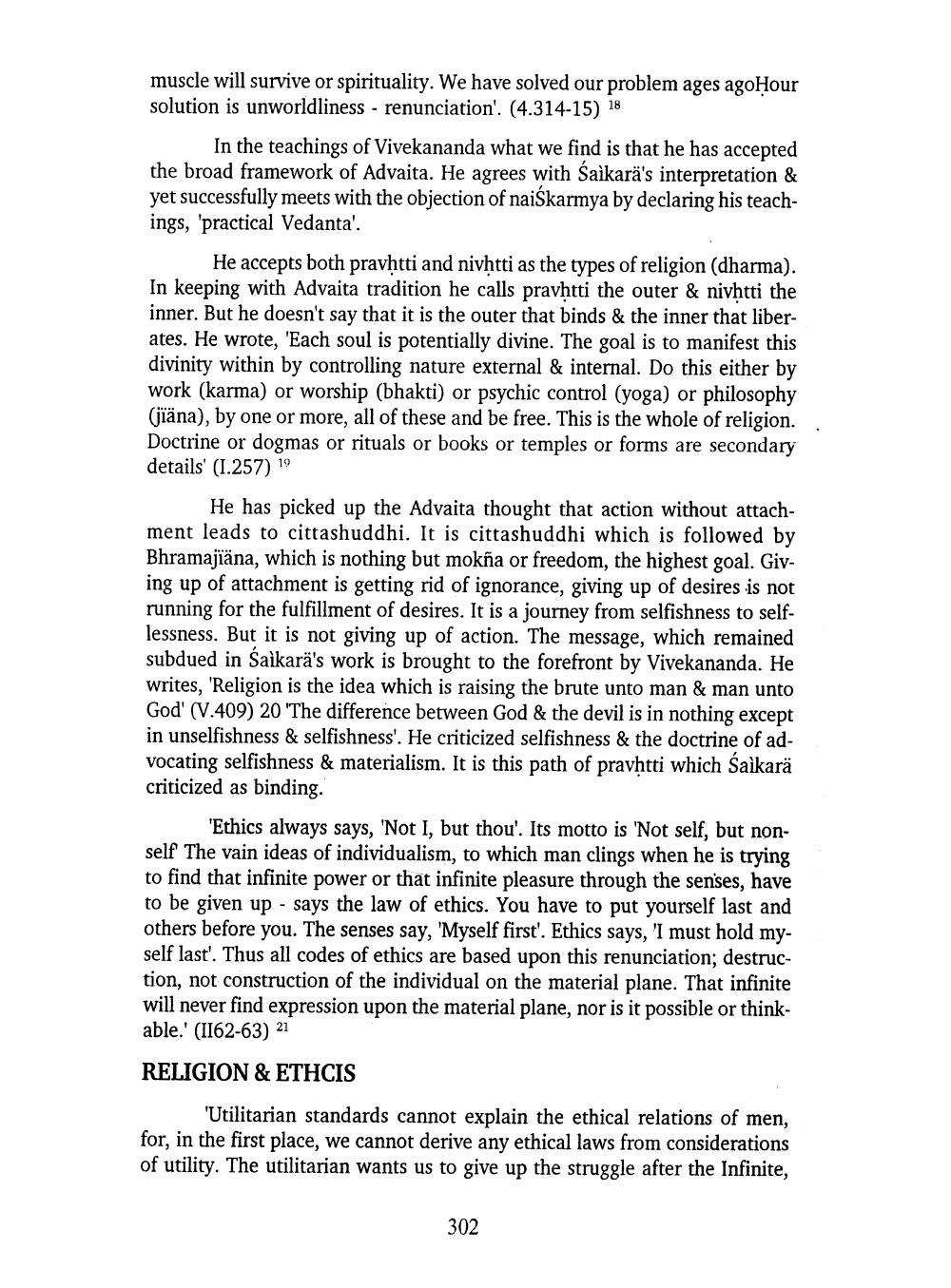________________
muscle will survive or spirituality. We have solved our problem ages ago Hour solution is unworldliness - renunciation'. (4.314-15) 18
In the teachings of Vivekananda what we find is that he has accepted the broad framework of Advaita. He agrees with Saikara's interpretation & yet successfully meets with the objection of naiškarmya by declaring his teachings, 'practical Vedanta'.
He accepts both pravhtti and nivhtti as the types of religion (dharma). In keeping with Advaita tradition he calls pravhtti the outer & nivhtti the inner. But he doesn't say that it is the outer that binds & the inner that liberates. He wrote, 'Each soul is potentially divine. The goal is to manifest this divinity within by controlling nature external & internal. Do this either by work (karma) or worship (bhakti) or psychic control (yoga) or philosophy (jiäna), by one or more, all of these and be free. This is the whole of religion. Doctrine or dogmas or rituals or books or temples or forms are secondary details' (1.257) 19
He has picked up the Advaita thought that action without attachment leads to cittashuddhi. It is cittashuddhi which is followed by Bhramajiäna, which is nothing but mokña or freedom, the highest goal. Giving up of attachment is getting rid of ignorance, giving up of desires is not running for the fulfillment of desires. It is a journey from selfishness to selflessness. But it is not giving up of action. The message, which remained subdued in Saikara's work is brought to the forefront by Vivekananda. He writes, 'Religion is the idea which is raising the brute unto man & man unto God' (V.409) 20 'The difference between God & the devil is in nothing except in unselfishness & selfishness'. He criticized selfishness & the doctrine of advocating selfishness & materialism. It is this path of pravhtti which Śaikara criticized as binding.
'Ethics always says, 'Not I, but thou'. Its motto is 'Not self, but nonself The vain ideas of individualism, to which man clings when he is trying to find that infinite power or that infinite pleasure through the senses, have to be given up - says the law of ethics. You have to put yourself last and others before you. The senses say, 'Myself first'. Ethics says, 'I must hold myself last'. Thus all codes of ethics are based upon this renunciation; destruction, not construction of the individual on the material plane. That infinite will never find expression upon the material plane, nor is it possible or thinkable.' (1162-63) 21
RELIGION & ETHCIS
"Utilitarian standards cannot explain the ethical relations of men, for, in the first place, we cannot derive any ethical laws from considerations of utility. The utilitarian wants us to give up the struggle after the Infinite,
302




